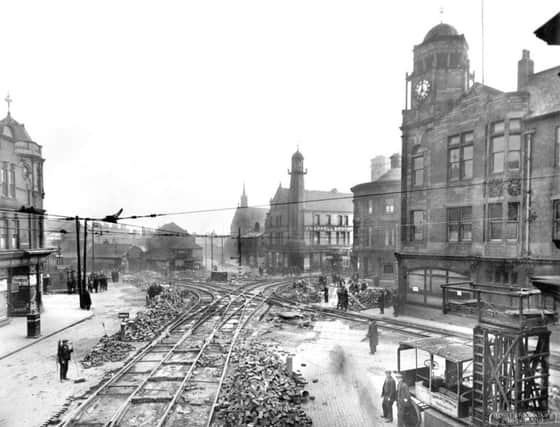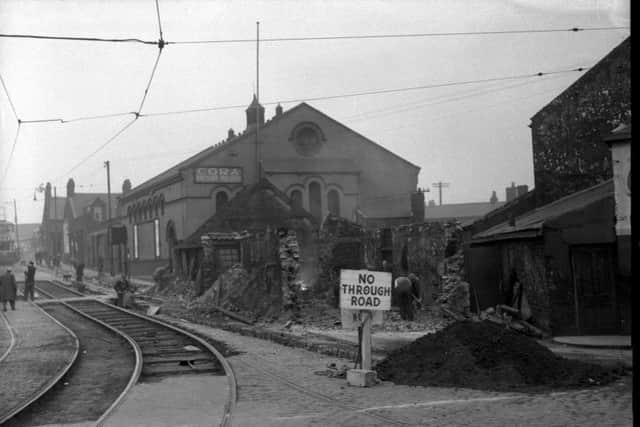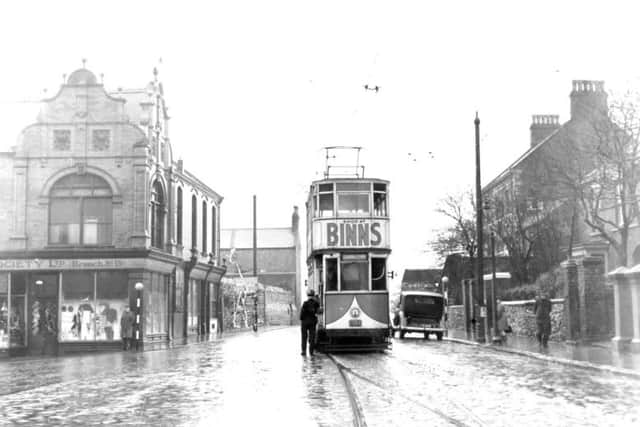Ne'er-do-well Sunderland soldier fought in two wars '“ and abandoned two families


Joseph Graham risked his life to fight for Britain in two wars - but also abandoned two families after twice fleeing to America.
“He lived through difficult times: the Boer War, Great War and Great Depression,” said Joseph’s great-niece Meg Hartford, who now lives in Nottingham.


Advertisement
Hide AdAdvertisement
Hide Ad“However, the most charitable description of his behaviour would be that he did not always tell the truth and he was harsh to those who were close to him.”
Joseph, son of Clement and Isabella Graham, was born in 1877 and grew up at Hardwick Street. He worked as a carpenter’s assistant, before fighting in the 2nd Boer War.
“He was awarded several Boer War medals,” said Meg.
“He also married Frances Thompson on January 27, 1900. Their daughter, Florence, was born on July 20.”


The marriage, Meg suspects, was not a happy one. Indeed, an advert in the Echo in 1904 suggests Joseph deserted his wife soon after the war.
Advertisement
Hide AdAdvertisement
Hide AdIt stated: “I, Frances Annie Graham, of 2 Back Warwick Street, give notice that I never contracted any debt in any person’s name unknown to them.”
By 1911, Frances and Florence were living with Frances’s parents in Bow Street, Southwick. There is, however, no sign of Joseph on the UK census.
“I knew from family stories that he had spent some time in America,” said Meg. “After much searching, I found a 1908 USA entry visa issued in Vermont.


“It revealed that on March 12, 1905, Joseph landed at Halifax, Nova Scotia, Canada. He worked in Toronto for four years, before moving to a hospital in Buffalo, New York State.
Advertisement
Hide AdAdvertisement
Hide Ad“I know he later moved to Boston, where his sister Harriett had settled. My grandfather, James, joined them in 1912, but he returned to Sunderland as he was unable to find work.”
The outbreak of World War One finally prompted Joseph to return to the UK and, on January 10, 1915, he joined the Army Service Corps.
He served as part of the Expeditionary Force, arriving in France just 14 days after enlisting. Within a month, he was promoted to sergeant – but bad luck followed in May.


“One old newspaper cutting claims Joseph was blown up and wounded in the head, but my great-uncle’s service record tells a different story,” said Meg.
Advertisement
Hide AdAdvertisement
Hide Ad“He was apparently out riding when a car drove close to him. His horse turned round, causing Joseph to lose his balance and fall off onto his head.”
Joseph was admitted to hospital with “concussion of the brain” and later sent home for treatment. In December 1915, however, he was declared unfit for war service.
“He was awarded several medals and moved back in with his father. In 1919, once war had ended, he then applied for a grant to return to the US,” said Meg.
“The Comrades of the Great War Association, of which Joseph was a founder member of the Sunderland branch, supported his request and the repatriation claim was granted.”
Advertisement
Hide AdAdvertisement
Hide AdBut news of the move came as a huge shock to a “Mrs Graham” of 9 Avenue Terrace, who had lived with Joseph since 1916, and gave birth to his daughter in 1917.
“Mrs Graham” – believed to be Clara Petterson, nee Proudfoot -– claimed Joseph had suggested their daughter be put in a home, and tried to claim a portion of his war pension.
The army, however, was brutal in its reply: “It is no matter for a military department.”
Clara was told to claim through the courts instead - but Joseph had already fled the country.
Advertisement
Hide AdAdvertisement
Hide Ad“I know that he sailed to New York in April 1920, but he did return to Sunderland at a later date, where he worked as a carpenter and lived in Southwick Road,” said Meg.
“He died on July 23, 1934. The information that he was blown up, given at the inquest into his death, again conflicts with the official record of events in France.
“I think Joseph must have been a brave soldier, but I suspect he was a very restless person, who constantly sought adventure. He did not settle anywhere, or with anyone, for long.”
l Meg would like to trace Joseph’s daughters, Florence Rooiden Paul (nee Graham) and Margaret Cresswell (nee Graham/Petterson). Email: [email protected]